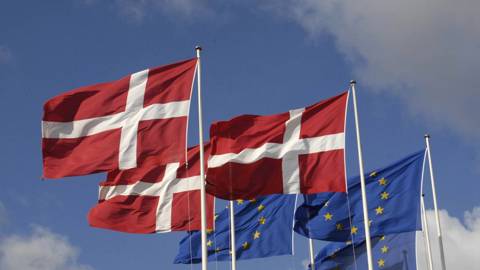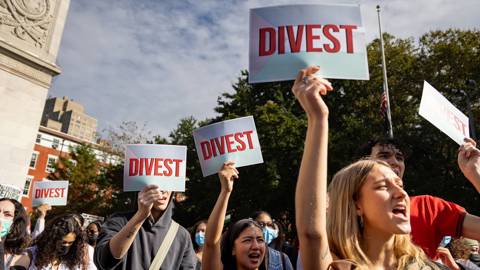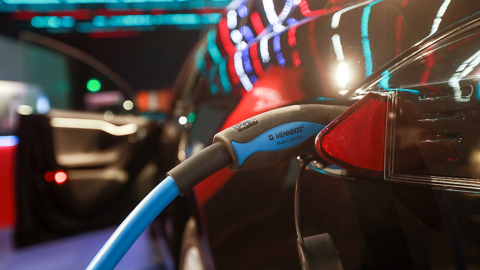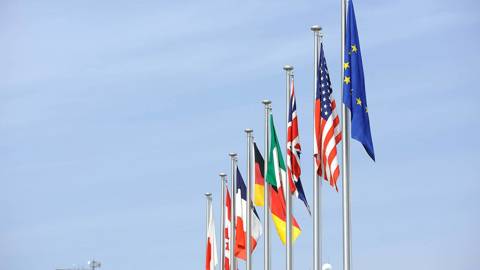By embracing perpetual bonds – or Consols, as they are known in the United Kingdom and the United States – George Soros believes the EU can address the dual crises of COVID-19 and climate change currently threatening the world. In this Q & A, he argues that Consols present a preferable alternative to raising the EU budget. The European Commission should accept them as an interesting idea that deserves further consideration.
PROJECT SYNDICATE: Will the negative impact of the coronavirus on the eurozone economy be long-lasting?
GEORGE SOROS: Longer than most people think. One of the problems is that the virus itself is rapidly evolving and changing the way it attacks human organs. This will make it much harder to develop a reliable vaccine.
PS: Some people have proposed that the EU issue so-called coronabonds. You have promoted the idea of perpetual bonds. Why are perpetual bonds better and what risks do they entail?
SOROS: The European public and their political leaders are not familiar with perpetual bonds or Consols, as I now like to call them, but Consols are well-known in the UK and the US. They have a long history in both countries. In the UK they were used, among other things, to finance the wars against Napoleon and the First World War. In the US, they were introduced in the 1870s.
Interestingly, a Dutch water board issued a perpetual bond in 1648 to repair a dike. This makes the Dutch the originators of the idea. More than 350 years later, that bond is still paying interest, but the general public is not aware of this. At that time, the Netherlands faced an existential threat from flooding. Today, the combination of the COVID-19 and climate change poses an even greater threat.
As its name suggests, the principal amount of a perpetual bond never has to be repaid; only the annual interest payments are due. A €1 trillion bond would cost €5 billion a year, assuming an interest rate of 0.5%. The Consols would not need to be sold all at once; they could be issued in tranches and they would be snatched up by long-term investors like life insurance companies who are looking for long-term bonds to match their liabilities.
As the markets familiarize themselves with the new instruments, later tranches would attract a larger set of buyers and eventually the bonds would fetch a premium. This is a good time to issue long-term bonds. Germany has recently sold a 30-year government bond with a negative yield.
Unfortunately, my suggestion for perpetual bonds has been confused with “coronabonds” and this has poisoned the debate. The two have nothing to do with each other. Coronabonds have been decisively rejected, and with good reason, given that they require a degree of mutualization that is simply not acceptable.
That is why I now speak about Consols. The only mutual obligation is the payment of the annual interest, which is negligible. A sum of €5 billion annually secures an urgently required €1 trillion – an amazingly low cost-benefit ratio of 1:200! That degree of mutualization should be easily accepted by the member states acting either unanimously or through a coalition of the willing.
Understandably, the so-called Frugal Four (Netherlands, Denmark, Sweden, and Austria) want to keep their contribution to the European budget to a minimum. However, they are now faced with a choice: they can continue opposing Consols and accept a doubling of the budget. Or they can become enthusiastic supporters of Consols and, if they succeed, increase their contribution to the budget by 5%. I urge the Hanseatic League and the Dutch public to ponder which alternative is preferable.
PS: Are there legal issues associated with the issuance of Consols, as you call perpetual bonds?
SOROS: Yes, there are, and they are seemingly insurmountable. The EU must maintain a AAA rating, otherwise the bonds would be unsaleable. That requires the EU to have what is called sufficient “own resources” – taxes that can be levied to cover the cost of servicing the bonds. Imposing taxes is a long, drawn-out process, because each country has its own rules and in some of them, like Belgium, the rules are very complicated. The process would take several years and that is why I said that the legal obstacles are seemingly insurmountable.
But there is a solution. The taxes only need to be authorized; they don’t need to be implemented. Authorization should take a few weeks, not a few years. Once they are authorized, the EU could go ahead and issue perpetual bonds or Consols.
Perpetual bonds have a tremendous advantage over bonds that have a termination date. As their name implies, the principal never has to be repaid; only the annual interest is payable. As I mentioned earlier, that amount is so minimal that it should be easily subscribed by the member states.
It should be particularly attractive to the Hanseatic League, led by the Netherlands. That is why the Hanseatic League ought to become enthusiastic supporters. In Germany, Angela Merkel is still Chancellor, and she is the only person who can overrule the ordoliberal establishment. With their support, the European Commission can accept Consols as a desirable alternative to be explored, but time is extremely short. A previously totally unknown instrument needs to be understood and adopted.
PS: If perpetual bonds are rejected, then what do we do?
SOROS: Exceptional circumstances require exceptional measures. Perpetual bonds or Consols are such a measure. They should not even be considered in normal times. But if the EU is unable to consider it now, it may not be able to survive the challenges it currently confronts. This is not a theoretical possibility; it may be the tragic reality.
The coronavirus and climate change are threatening not only people’s lives, but the survival of our civilization.
The European Union is particularly vulnerable, because it is based on the rule of law and the wheels of justice turn proverbially slowly. By contrast, the coronavirus moves very fast and in unpredictable ways.
That is why the EU needs to issue perpetual bonds. Issuing bonds with a cost-benefit ratio of 1:200 opens up an amazing amount of fiscal space. The money raised does not have to be distributed according to the so-called fiscal key (member states’ shareholding in the ECB). It can be allocated to those in the greatest need. Most of the money would go to the southern European countries, because they were the hardest hit, and within those countries they could assist people who are most in need and who are most needed, like unregistered agricultural workers. Some of this is already happening, but the amount of money available would be greatly increased.
PS: Turning to the UK, was Brexit avoidable? What can or should the EU do to stop other member states from leaving?
SOROS: There is no point crying over spilled milk. But the question of how to prevent other countries from following the UK is an important one.
I am particularly concerned about Italy. Matteo Salvini, the leader of the Lega party, is agitating for the country to leave the euro and the EU. Fortunately, his personal popularity has declined since he left the government, but his advocacy is gaining momentum.
What would be left of Europe without Italy? Italy used to be the most pro-European country. Italians trusted Europe more than their own governments, and with good reason. But they were badly treated during the refugee crisis of 2015. The EU enforced the so-called Dublin Regulations that put all the burden on the countries where refugees first landed, and did not offer any financial burden-sharing.
That is when Italians decide to vote for Salvini’s Lega and the Five Star Movement in a landslide. More recently, the relaxation of state aid rules, which favor Germany, has been particularly unfair to Italy, which was already the sick man of Europe and then the hardest hit by COVID-19.
PS: Have you given up hope?
SOROS: Not at all. As long as I can come up with ideas like perpetual bonds, I don’t give up hope.
Postscript
I don’t want to be critical of the non-paper published by the Frugal Four countries, because it was written without awareness of the merits of perpetual bonds or Consols. The Spanish government proposed the idea on April 23 at the virtual meeting of the European Council, but it was dismissed without consideration because perpetual bonds were confused with coronabonds.
That is why I now prefer to talk of Consols. One of the merits of Consols is that the funds raised can be distributed not according to the fiscal key, but allocated to those that need them the most. Another merit is that Consols can help to fight not only the virus, but also climate change. That would allow the EU to fulfill the expectations of its citizens.
If member states pursued only their own interests, the EU would disintegrate and we would all be losers. Fortunately, the non-paper only expresses the views of governments which have not been debated and approved by parliaments – and the governments may change their views when they consider the merits of Consols. Consols would give them what they are looking for, a budget that is increased only by a few percentage points and avoids all the complications regarding grants or loans with which the non-paper has to struggle. Consols would also give the Frugal Four something they seem to have forgotten about: the strengthening of the EU instead of its disintegration. The EU needs a powerful demonstration of solidarity.











By embracing perpetual bonds – or Consols, as they are known in the United Kingdom and the United States – George Soros believes the EU can address the dual crises of COVID-19 and climate change currently threatening the world. In this Q & A, he argues that Consols present a preferable alternative to raising the EU budget. The European Commission should accept them as an interesting idea that deserves further consideration.
PROJECT SYNDICATE: Will the negative impact of the coronavirus on the eurozone economy be long-lasting?
GEORGE SOROS: Longer than most people think. One of the problems is that the virus itself is rapidly evolving and changing the way it attacks human organs. This will make it much harder to develop a reliable vaccine.
PS: Some people have proposed that the EU issue so-called coronabonds. You have promoted the idea of perpetual bonds. Why are perpetual bonds better and what risks do they entail?
SOROS: The European public and their political leaders are not familiar with perpetual bonds or Consols, as I now like to call them, but Consols are well-known in the UK and the US. They have a long history in both countries. In the UK they were used, among other things, to finance the wars against Napoleon and the First World War. In the US, they were introduced in the 1870s.
Interestingly, a Dutch water board issued a perpetual bond in 1648 to repair a dike. This makes the Dutch the originators of the idea. More than 350 years later, that bond is still paying interest, but the general public is not aware of this. At that time, the Netherlands faced an existential threat from flooding. Today, the combination of the COVID-19 and climate change poses an even greater threat.
As its name suggests, the principal amount of a perpetual bond never has to be repaid; only the annual interest payments are due. A €1 trillion bond would cost €5 billion a year, assuming an interest rate of 0.5%. The Consols would not need to be sold all at once; they could be issued in tranches and they would be snatched up by long-term investors like life insurance companies who are looking for long-term bonds to match their liabilities.
As the markets familiarize themselves with the new instruments, later tranches would attract a larger set of buyers and eventually the bonds would fetch a premium. This is a good time to issue long-term bonds. Germany has recently sold a 30-year government bond with a negative yield.
Unfortunately, my suggestion for perpetual bonds has been confused with “coronabonds” and this has poisoned the debate. The two have nothing to do with each other. Coronabonds have been decisively rejected, and with good reason, given that they require a degree of mutualization that is simply not acceptable.
That is why I now speak about Consols. The only mutual obligation is the payment of the annual interest, which is negligible. A sum of €5 billion annually secures an urgently required €1 trillion – an amazingly low cost-benefit ratio of 1:200! That degree of mutualization should be easily accepted by the member states acting either unanimously or through a coalition of the willing.
Understandably, the so-called Frugal Four (Netherlands, Denmark, Sweden, and Austria) want to keep their contribution to the European budget to a minimum. However, they are now faced with a choice: they can continue opposing Consols and accept a doubling of the budget. Or they can become enthusiastic supporters of Consols and, if they succeed, increase their contribution to the budget by 5%. I urge the Hanseatic League and the Dutch public to ponder which alternative is preferable.
PS: Are there legal issues associated with the issuance of Consols, as you call perpetual bonds?
SOROS: Yes, there are, and they are seemingly insurmountable. The EU must maintain a AAA rating, otherwise the bonds would be unsaleable. That requires the EU to have what is called sufficient “own resources” – taxes that can be levied to cover the cost of servicing the bonds. Imposing taxes is a long, drawn-out process, because each country has its own rules and in some of them, like Belgium, the rules are very complicated. The process would take several years and that is why I said that the legal obstacles are seemingly insurmountable.
But there is a solution. The taxes only need to be authorized; they don’t need to be implemented. Authorization should take a few weeks, not a few years. Once they are authorized, the EU could go ahead and issue perpetual bonds or Consols.
Perpetual bonds have a tremendous advantage over bonds that have a termination date. As their name implies, the principal never has to be repaid; only the annual interest is payable. As I mentioned earlier, that amount is so minimal that it should be easily subscribed by the member states.
It should be particularly attractive to the Hanseatic League, led by the Netherlands. That is why the Hanseatic League ought to become enthusiastic supporters. In Germany, Angela Merkel is still Chancellor, and she is the only person who can overrule the ordoliberal establishment. With their support, the European Commission can accept Consols as a desirable alternative to be explored, but time is extremely short. A previously totally unknown instrument needs to be understood and adopted.
PS: If perpetual bonds are rejected, then what do we do?
SOROS: Exceptional circumstances require exceptional measures. Perpetual bonds or Consols are such a measure. They should not even be considered in normal times. But if the EU is unable to consider it now, it may not be able to survive the challenges it currently confronts. This is not a theoretical possibility; it may be the tragic reality.
The coronavirus and climate change are threatening not only people’s lives, but the survival of our civilization.
The European Union is particularly vulnerable, because it is based on the rule of law and the wheels of justice turn proverbially slowly. By contrast, the coronavirus moves very fast and in unpredictable ways.
That is why the EU needs to issue perpetual bonds. Issuing bonds with a cost-benefit ratio of 1:200 opens up an amazing amount of fiscal space. The money raised does not have to be distributed according to the so-called fiscal key (member states’ shareholding in the ECB). It can be allocated to those in the greatest need. Most of the money would go to the southern European countries, because they were the hardest hit, and within those countries they could assist people who are most in need and who are most needed, like unregistered agricultural workers. Some of this is already happening, but the amount of money available would be greatly increased.
PS: Turning to the UK, was Brexit avoidable? What can or should the EU do to stop other member states from leaving?
SOROS: There is no point crying over spilled milk. But the question of how to prevent other countries from following the UK is an important one.
I am particularly concerned about Italy. Matteo Salvini, the leader of the Lega party, is agitating for the country to leave the euro and the EU. Fortunately, his personal popularity has declined since he left the government, but his advocacy is gaining momentum.
What would be left of Europe without Italy? Italy used to be the most pro-European country. Italians trusted Europe more than their own governments, and with good reason. But they were badly treated during the refugee crisis of 2015. The EU enforced the so-called Dublin Regulations that put all the burden on the countries where refugees first landed, and did not offer any financial burden-sharing.
That is when Italians decide to vote for Salvini’s Lega and the Five Star Movement in a landslide. More recently, the relaxation of state aid rules, which favor Germany, has been particularly unfair to Italy, which was already the sick man of Europe and then the hardest hit by COVID-19.
PS: Have you given up hope?
SOROS: Not at all. As long as I can come up with ideas like perpetual bonds, I don’t give up hope.
Postscript
I don’t want to be critical of the non-paper published by the Frugal Four countries, because it was written without awareness of the merits of perpetual bonds or Consols. The Spanish government proposed the idea on April 23 at the virtual meeting of the European Council, but it was dismissed without consideration because perpetual bonds were confused with coronabonds.
That is why I now prefer to talk of Consols. One of the merits of Consols is that the funds raised can be distributed not according to the fiscal key, but allocated to those that need them the most. Another merit is that Consols can help to fight not only the virus, but also climate change. That would allow the EU to fulfill the expectations of its citizens.
If member states pursued only their own interests, the EU would disintegrate and we would all be losers. Fortunately, the non-paper only expresses the views of governments which have not been debated and approved by parliaments – and the governments may change their views when they consider the merits of Consols. Consols would give them what they are looking for, a budget that is increased only by a few percentage points and avoids all the complications regarding grants or loans with which the non-paper has to struggle. Consols would also give the Frugal Four something they seem to have forgotten about: the strengthening of the EU instead of its disintegration. The EU needs a powerful demonstration of solidarity.